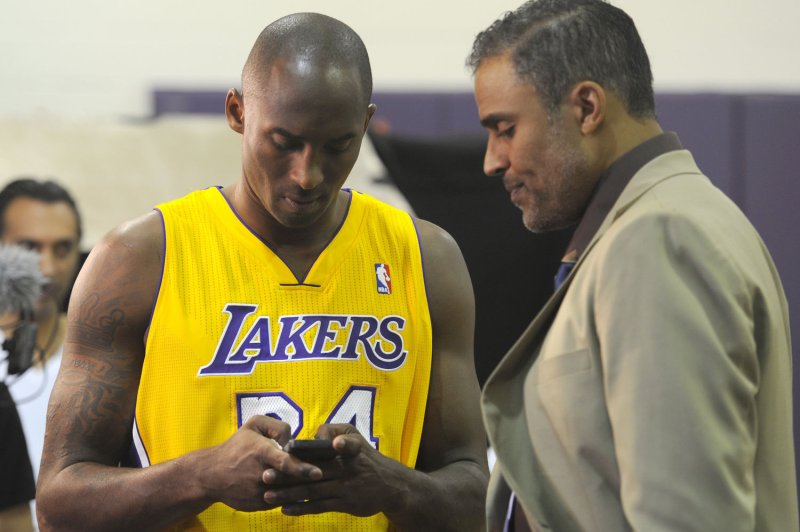New research showed players who stayed up late tweeting tended to play fewer minutes, score fewer points and shoot less efficiently in their next game. Photo by Lori Shepler/UPI |
License Photo
June 2 (UPI) -- NBA players who stay up late tweeting the night before a game tend to suffer subpar performances on the court.
When researchers at Stony Brook University looked at the relationship between late-night tweeting and basketball performance, they found NBA players players active on Twitter between 11 p.m. and 7 a.m. were less efficient shooters and scored fewer points.
"Using late-night tweeting activity as a proxy for being up late, we interpret these data to show that basketball skills are impaired after getting less sleep," lead researcher Jason J. Jones, a professor of sociology at Stony Brook, said in a news release. "While experimental studies have shown the impact of sleep deprivation on performance, this study uses big data to provide interpretable results on real-world performance of basketball players."
In games following late-night tweeting, players suffered an average of a 1.7 percent drop in field goal percentage. Players' drop in points can be explained by the fact that late-night tweeters played an average of two fewer minutes.
"Our findings are relevant beyond just sports science research," said researcher Lauren Hale, a professor of public health at Stony Brook. "Our results demonstrate a broader phenomenon: to perform at your personal best, you should get a full night of sleep."
To conduct their study, Jones and Hale looked at the Twitter activity of 112 NBA players over the course of seven basketball seasons from 2009 to 2016. Researchers compared the Twitter data with basketball stats compiled by Yahoo Sports. The scientists published their findings in the journal Sleep.
"Twitter is currently an untapped resource for late-night behavior data that can be used as a proxy for not sleeping," said Jones. "We hope this will encourage further studies making use of time-stamped online behavior to study the effects of sleep deprivation on real-world performance."















